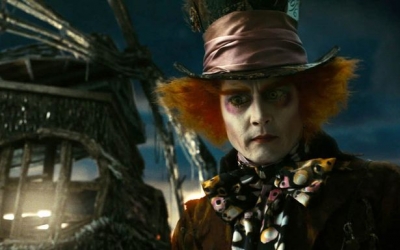- Latest news▼
-
15:11, April 24 Zombie deer disease possibly linked to hunters’ deaths

-
12:27, April 23 Appetite: Scientists found out the secret to the appeal of large portions of fast food

-
10:33, April 23 Scientists test new approach to fighting viruses

-
08:38, April 23 Ketamine may help with postpartum depression

-
22:12, April 22 Unhealthy amount of sugar found in baby food products of a well-known brand

-
19:41, April 22 Air pollution puts health of more than 1.6 billion workers globally at risk

-
17:25, April 22 Scientists found baked goods and lack of sleep to be more dangerous than alcohol

-
16:02, April 22 342 cases of measles recorded in Armenia so far in 2024

-
15:29, April 22 BrainStimulation: electrical brain stimulation alleviates anxiety and depression in the elderly

-
08:27, April 22 Cognitively stimulating jobs in midlife could lower dementia risk in old age, study finds

-
20:37, April 21 Environmental Health Perspectives: Microplastics ingested with food and water can spread from the gut to the brain

-
22:41, April 20 Scientists develop new method to safely stimulate immune cells to fight cancer

-
20:46, April 20 Blood test can determine who is at risk of developing multiple sclerosis - scientists

-
18:36, April 20 Next pandemic likely to be triggered by flu - scientists

-
12:16, April 19 Scientists grow human mini-lungs in lab

All materials
Scientists use Alice in Wonderland movie to detect early signs of PSYCHOSIS

It may have been slated by the critics, but Tim Burton's 'Alice in Wonderland' could actually change the lives of people with psychosis.
Scientists have used the reactions of people watching the 2010 film to detect the first signs of the mental illness in seemingly healthy people.
The team from Finland discovered psychotics viewed and processed information from the fantasy film differently and these brain patterns could help doctors identify those at risk.
Psychosis is a mental health problem that causes people to perceive or interpret things differently from those around them, and might involve hallucinations or delusions.
The brain processes of psychotic disorders remains inadequately understood and early diagnosis is difficult as patterns in the brain are not as 'hard wired' as in chronic sufferers.
The scientists say the study may now revolutionise the way people with psychosis are treated.
Eva Rikandi of the Aalto University in Helsinki said: "In this work, we attempted to determine whether a person is a first-episode psychosis patient or a healthy control subject just by looking at their brain activity recorded during movie viewing.
"We found, that by monitoring activity in a region known as the precuneus, we were able to distinguish patients from control subjects especially well."
Using scans, the researchers showed even those who had suffered psychotic episode process information differently from a control group when shown the 2010 Hollywood blockbuster.
They chose to show 46 first-episode psychotic patients and 32 healthy controls the film so each group were receiving the same information-rich stimulus.
It found that significant differences could be seen in the precuneus region of the brain, which is an area associated with memory, spatial and visual awareness, self-awareness, and aspects of consciousness.
Ms Rikandi added: "We were able to achieve almost 80 per cent classification accuracy using these methods. This would mean that the precuneus, a central hub for the integration of self- and episodic-memory-related information, plays an important role in this kind of information processing of psychotic patients.
"This is the first study which directly associates the beginnings of psychosis with the precuneus, so it is now important that much more research is done in this area."
The findings, which were presented at the European College of Neuropsychopharmacology Congress in Amsterdam, will help develop earlier screening and better diagnosis of those at risk.
ECNP President-Elect Professor Celso Arango from Madrid said: "The interesting question here is how patients with psychosis, even in their first episode, process information in a different way.
"Specifically how a movie such as Alice in Wonderland elicits the participation of different brain areas, and how that relate to the history of the person watching.
"What we would like to know is if patients with psychosis might see this as more or less relevant to their own life than would healthy controls.
"This movie is about a fantasy world, would it be different with other types of movie?"
Follow NEWS.am Medicine on Facebook and Twitter
- Video
- Event calendar
- Archive
- Most read
month
week
day
- JAMA Oncology: Urine test can help rule out high-grade prostate cancer with almost 100% accuracy, study shows 1216
- Daily Mail: Elderly woman in China gets infected with brain-eating amoeba 1168
- The Conversation: childhood trauma can cause pathological hoarding 1152
- Obesity: exercising before breakfast helps you lose weight faster 1152
- Daily Mail: Satiating food reduces cravings for sweets, nutritionist says 1126
- Scientists grow human mini-lungs in lab 1117
- Next pandemic likely to be triggered by flu - scientists 721
- Scientists found baked goods and lack of sleep to be more dangerous than alcohol 646
- 342 cases of measles recorded in Armenia so far in 2024 608
- Blood test can determine who is at risk of developing multiple sclerosis - scientists 597
- Scientists develop new method to safely stimulate immune cells to fight cancer 590
- Cognitively stimulating jobs in midlife could lower dementia risk in old age, study finds 573
- BrainStimulation: electrical brain stimulation alleviates anxiety and depression in the elderly 530
- Air pollution puts health of more than 1.6 billion workers globally at risk 366
- Ketamine may help with postpartum depression 357
- Find us on Facebook
- Poll





